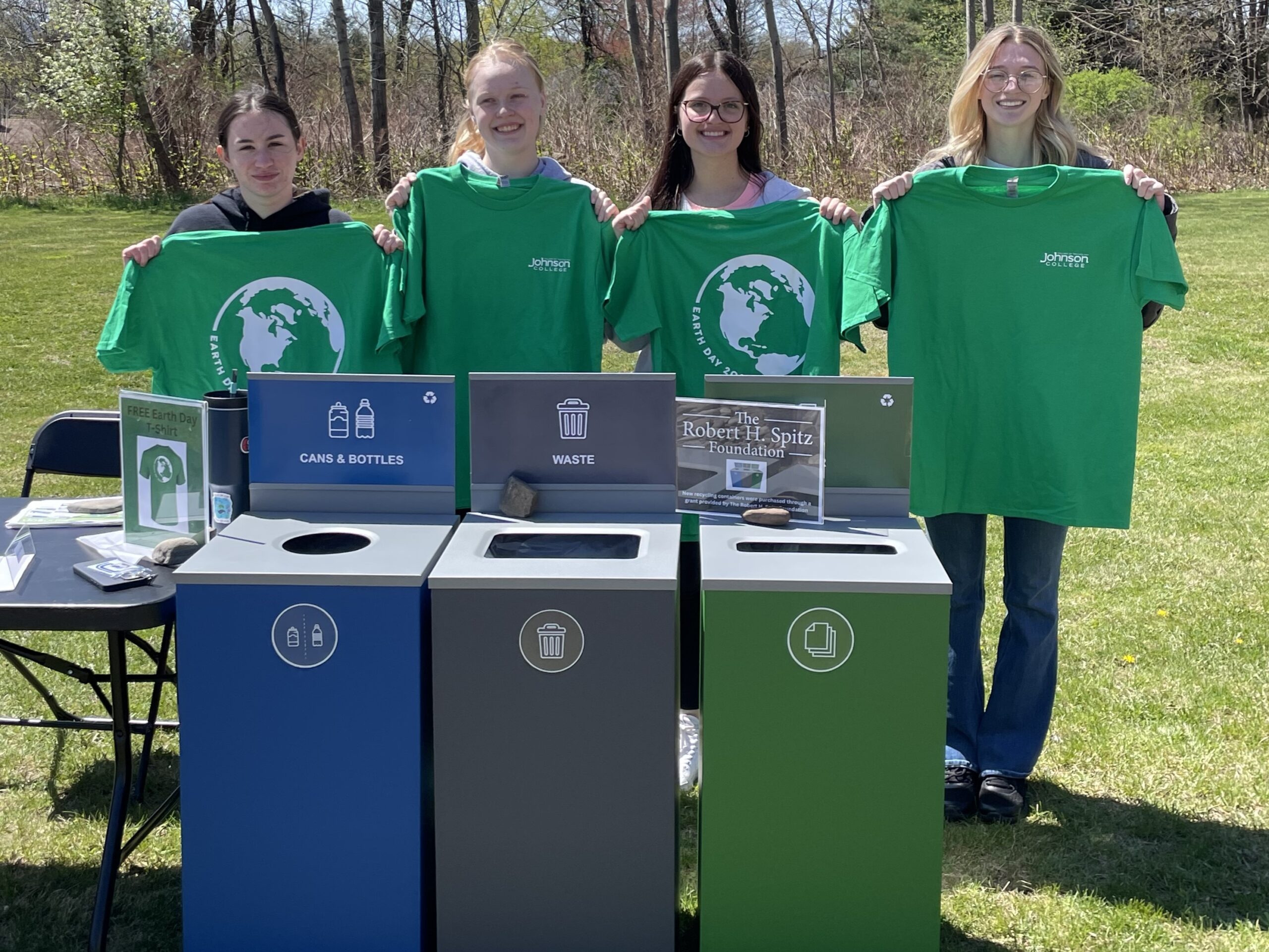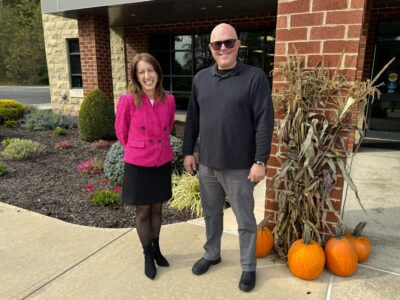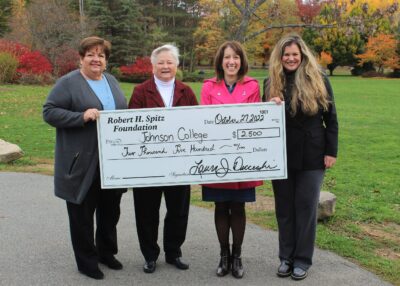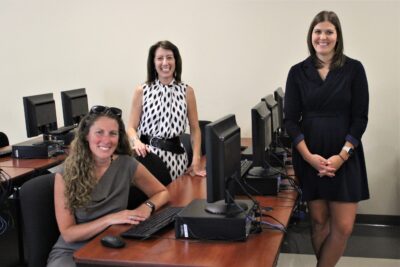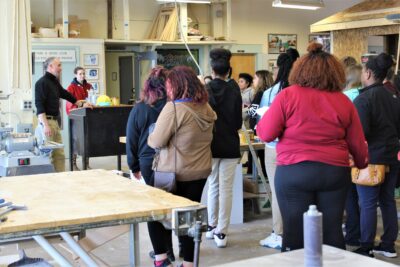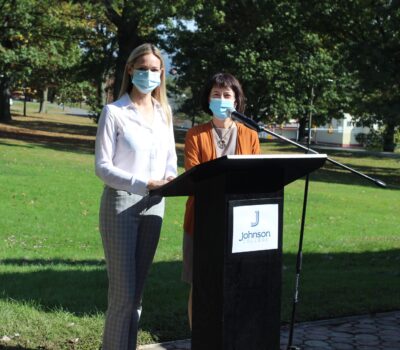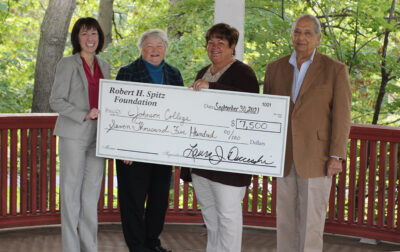Johnson College has been awarded an $8,000 grant from the Robert H. Spitz Foundation’s 2023 grant cycle to support recycling and sustainability enhancements throughout its Scranton campus. The funding will be used to update the College’s current recycling receptacles with more user-friendly containers.
The College displayed the new receptacles to the campus community during an Earth Day celebration on Monday, April 22, 2024. The event featured environmental-themed games and activities throughout campus including a scavenger hunt to introduce students to the locations where the new recycling containers will be located.
The new, three-stream receptacles will be placed in heavily traveled areas of the Scranton campus. They will be more consistent in appearance than previous receptacles and feature vibrant, color-coded bins to improve recycling practices at Johnson College. The new recycling bins will support the College’s campus-wide recycling and sustainability plan reducing the College’s environmental footprint. Supported efforts include reducing the amount of recyclable material going to the landfill and dumpsters currently used on campus, and turning some of the College’s highly recyclable educational program materials like lumber, copper, and wiring back to the community for use where possible.
About the Robert H. Spitz Foundation The Robert H. Spitz Foundation is a registered 501(c)(3) nonprofit organization that supports initiatives and programs serving the residents of Lackawanna County and Northeastern Pennsylvania. Robert H. Spitz was born in Scranton in 1955. He was a graduate of Scranton Central High School and the University of Miami, Florida. The Robert H. Spitz Foundation was established from his estate in 2015 and supports an array of projects and programs that are aimed at improving the community. To date, the Robert H. Spitz Foundation, administered by the Scranton Area Community Foundation, has provided over $4.6 million in funding to the community.

